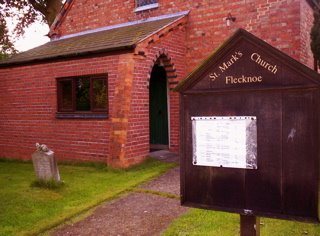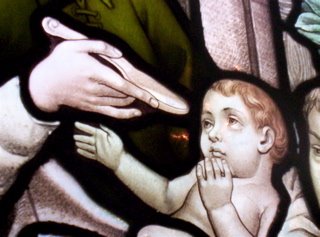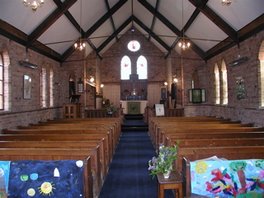'Global challenge' - a newsletter article by Andrew Grant (Churchwarden, Flecknoe)
"On a visit to the United States in May, the Archbishop of Canterbury, Rowan Williams, used the opportunity to raise the moral issue of global warming. Much effort is spent by the church and Christian charities such as Christian Aid and Tear Fund to try and improve the lot of the millions round the World who lack the basic necessities of life that we take for granted. We dip into our pockets whenever we hear of humanitarian disasters and satisfy ourselves that we are doing our bit to help those less fortunate than ourselves. But is there a greater moral issue that we are not facing up to?
The evidence is now clear that our consumption of the Word’s resources and in particular of fossil fuels such as oil, coal and gas has taken the level of carbon dioxide in the air to the point where a significant rise in global temperatures is inevitable. What will be the consequences of this? There has been much publicity surrounding the increased hurricane activity in the Caribbean and destruction of New Orleans, but what of the impact on the poor of the World? Many tens of millions already live in marginal areas where rains frequently fail. For them life will become unsustainable. We, the more prosperous nations, are already saying we can not take in more immigrants and are devising ways to make our borders more secure. What is to happen to those who must move to survive? It is probable that this will number more than a billion people within 50 years, given current trends.
What is our Christian responsibility? We can not let them starve, but neither can our damaged planet enable them to live. Is this not the greatest moral dilemma facing our World today? We in the developed world must make sacrifices to our standard of living now to allow the less fortunate a life. Is it surprising that our Archbishop chose to raise this issue in the land that symbolises consumerisation?"
Andrew Grant.
Subscribe to:
Post Comments (Atom)








1 comment:
Security Spectrum
copyright Norman MacInnis 2005
The Ten Points of the Security Spectrum
0. Cosmic - your soul, the meaning of life
1. Global - earth health, adequate resources to thrive
2. Economic - the business of having money to conduct one’s life in tandem with billions of other individuals
3. Community - health and safety of home, work and play
4. Family - the home in your heart and the home you head home to
5. Social - How logical is your social, what dangers and addictions?
6. Personal - what matters most, where you live love
7. Psychological - How well do you handle the traumas life presents? How nervous is your neurosis?
8. Future - your children, nieces, nephews, all the other children of the world
9. Death - your will and wishes, and the beyond
We want safety of life and limb and we want security for our possessions and property.
We want protection from thieves, thugs, terrorists, and tyrants.
The ten point security spectrum summarizes a nuanced reality.
It is spelt out in black and white, while real life gives a full colour version to each of us.
Security is a complex issue because it must address the inter- connectedness of our living conditions.
We know it subjectively first.
We must persist tenaciously to objectively verify it.
Mother Nature and Human Nature provide many miracles and miseries.
How much security do we expect or need?
The Ten Points of the Security Spectrum begins with Zero as opposed to the typical One for a reason.
Zero represents the open question ‘what is the meaning of life?’.
While still in the circle of life we are not allowed a full answer.
We move forth devising ways to maintain physical comfort and peace of mind.
~~~
Cheerio from Canada!
Post a Comment